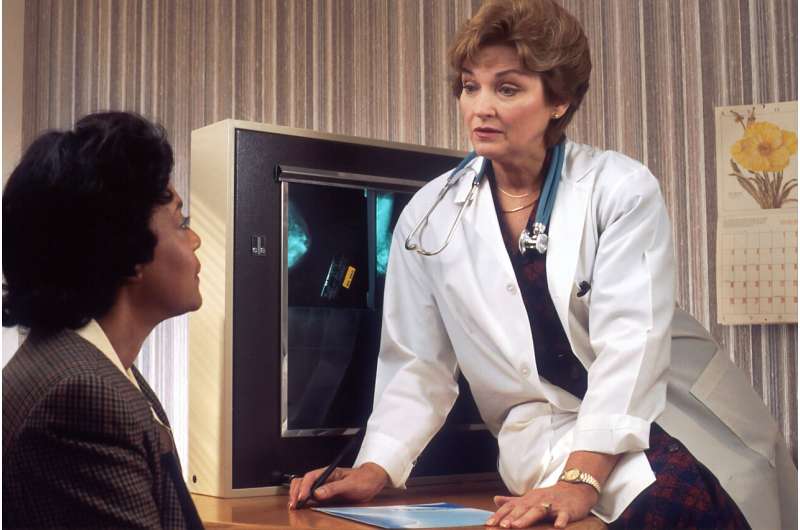Social media networking doesn't 'level the playing field' for women physicians

For men physicians, the professional perks of networking on social media, like being asked to give a talk, are abundant, a new Northwestern Medicine study reports.
For women physicians, the benefits are far less plentiful, the study found.
What's more, women physicians are more than twice as likely to be sexually harassed on social media than men physicians, according to an earlier study, published in January, of this same group of study participants.
The findings mirror the struggles women physicians face in person when trying to advance their careers, said first author Nicole Woitowich, research assistant professor of medical social sciences at Northwestern University Feinberg School of Medicine.
"There's been this line of thinking that social media can be used to level the playing field and give women equal opportunities, but it turns out the same biases that promote men are occurring online as well," Woitowich said. "Women are not reaping the benefits of social media, and they're doing so in the face of more online harassment."
The study will be published May 13 in the journal JAMA Network Open.
"Our study makes it even more clear that it is necessary to be intentional in how we engage on social media, and the importance of amplifying women, minorities and those with intersectional identities," said senior author Dr. Shikha Jain, a hematologist and oncologist at University of Illinois Chicago. "There are many benefits that can come from engaging online, as has been shown in other studies, but pitfalls that exist in the real world are just as prevalent in the digital space."
The data also suggest these gender biases may be occurring in other, nonmedical, fields that are traditionally dominated by men, which is worrisome, as a majority of interpersonal interactions have shifted online during the pandemic, Woitowich said.
'I use social media to ...'
In the study, "Gender Differences in Physician Use of Social Media for Professional Advancement," 577 participants completed a survey the study authors sent via traceable links on Twitter between Feb. 6 and March 20, 2019.
Participants could choose to identify as "female," "male," "non-binary/third gender" and "prefer to self-describe." No respondents identified as "non-binary/third gender" or "prefer to self-describe." Anyone who identified as "prefer not to say" were excluded from further analysis.
The survey asked respondents to answer if they agreed or disagreed with questions such as "social media has increased my collaborators with individuals at other institutions," "social media has directly led to a speaking opportunity or engagement" and "social media has resulted in a scholarship opportunity."
While both men and women physicians said that they have expanded their professional network through social media, men were more likely to receive requests to give talks (39% of men respondents versus 30% of women respondents) and participate in other scholarly activities (25% of men versus 21% of women) than women.
While men in the study reported being more likely to use social media for research and educational purposes (83% of men versus 68% of women), women in the study said they were motivated to use social media for additional social support (73% of women versus 55% of men). Woitowich said this is likely because men in academic medicine do not face the same levels of sexual and verbal harassment and gender discrimination as women and thus don't need an outlet to seek advice and counsel from their same-gendered peers.
"We did not address this in our survey, but it may be likely that women also use social media to voice and address these gender inequities," Woitowich said. "Simply put, women physicians may not be afforded the luxury of browsing social media solely for scholarly purposes."
"There are strategies and solutions to ensure these inequities do not persist," Jain said. "Groups such as Women of Impact and the Women in Medicine Summit have created strategic social media amplifiers to lift up the voices of those that are often underrepresented. Others, such as IMPACT and Dear Pandemic, have leveraged social media to collaboratively lift up the voices of women experts while also becoming trusted resources during the COVID-19 pandemic."
More information: JAMA Network Open (2021). DOI: 10.1001/jamanetworkopen.2021.9834

















